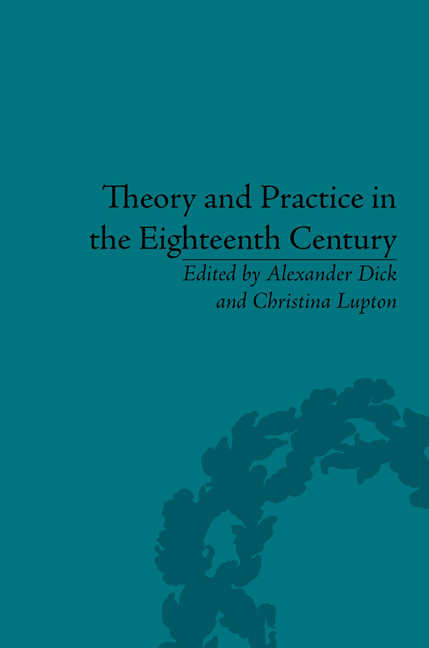Book contents
- Frontmatter
- CONTENTS
- Notes on Contributors
- Introduction
- I Writing Philosophy
- 1 Philosophy/Non-Philosophy and Derrida's (Non) Relations with Eighteenth-Century Empiricism
- 2 Locke'ss Desire
- 3 Philosophy and Politeness, Moral Autonomy and Malleability in Shaftesbury's Characteristics
- 4 Reid, Writing and the Mechanics of Common Sense
- II Reading Hume
- III Thinking Literature
- Notes
- Works Cited
- Index
1 - Philosophy/Non-Philosophy and Derrida's (Non) Relations with Eighteenth-Century Empiricism
from I - Writing Philosophy
- Frontmatter
- CONTENTS
- Notes on Contributors
- Introduction
- I Writing Philosophy
- 1 Philosophy/Non-Philosophy and Derrida's (Non) Relations with Eighteenth-Century Empiricism
- 2 Locke'ss Desire
- 3 Philosophy and Politeness, Moral Autonomy and Malleability in Shaftesbury's Characteristics
- 4 Reid, Writing and the Mechanics of Common Sense
- II Reading Hume
- III Thinking Literature
- Notes
- Works Cited
- Index
Summary
Perhaps only the glamour shed by the name Jacques Derrida could explain recent claims about his ‘lifetime engagement with the eighteenth-century archives’. For the body of his writing devoted to this century is in fact very small. Besides scattered references to Kant, Sade and some others, there are the long and famous chapters in De la grammatologie devoted to an unpublished work by Rousseau; a little discussed book on a largely neglected French philosopher, Condillac; a largely ignored essay about the origins of writing according to an eighteenth-century Anglican apologist, William Warburton. But even this meagre corpus does not fully measure Derrida's neglect of one of the most robust periods in Western philosophy, particularly in France. The most telling lacuna in Derrida's supposed ‘lifetime engagement’ with the eighteenth century lies in his almost entire failure to deal with this era's reigning philosophical tradition, empiricism. Even in the works mentioned above, Derrida has virtually nothing to say about empiricism itself. The pre-eminent empiricist philosophers of this age – Locke, Berkeley, Hume, just to start – all merit hardly a mention in the entire corpus of Jacques Derrida.
This neglect is not surprising. It is a repeated and imperative assertion in Derrida's writing that empiricism is not in fact ‘philosophy’ at all: ‘empiricism always has been determined by philosophy, from Plato to Husserl, as nonphiliosophy : as the philosophical pretension to nonphilosophy, the inability to justify oneself, to come to one's own aid as speech’. That this very statement draws a kind of institutional plasma from empiricism (consider: ‘from Plato to Husserl’) is just the point: Derrida's deconstructive career drove an invasive, contraband journey along the border of a territory he called ‘non-philosophy’, the outland of empiricism. A philosopher who built his career on evidence gathered from archival texts across history clearly had links to this country, as little as he liked to admit this affinity. In other ways, as well, he sometimes sounded, suspiciously, like an empiricist. Empiricists have historically denied the relevance of ontology, and the reality of ‘being’ as anything except a verbal abstraction. Particularly during the eighteenth century, empiricists insisted that human consciousness is fundamentally semiotic, and that all human approaches to experience are mediated through signs.
- Type
- Chapter
- Information
- Theory and Practice in the Eighteenth CenturyWriting Between Philosophy and Literature, pp. 11 - 30Publisher: Pickering & ChattoFirst published in: 2014



